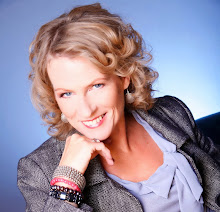A recent report by Atlas Cloud Computing highlighted a potential upside of the way Covid 19 has changed our working lives.
Sifting through responses from 3000 people who had been office based prior to the virus and were now working from home, they came up with some interesting statistics, neatly demonstrated in their infographic. Two very interesting things showed up.
Firstly, 4 out of 5 people i.e. 79% in the study thought that they were able to work effectively from home. Secondly 86% felt they are more productive when they worked from home.
Schroders has told its staff that even after the pandemic they won't have to return to the office full time and can negotiate attendance with their managers. In Japan last month Fujitsu announced its 'Work Life Shift' to enable staff to prioritise working from home aiming to "introduce a new way of working that promises a more empowering, productive and creative experience for employees that will boost innovation and deliver new value to customers and society".
One of the main effects of this slide towards remote working as a norm, is the hours saved on the daily commute. Last September figures from Lloyds Bank indicated that in the UK we spend over 10 days per annum on our daily commute with the average journey time being 65 minutes each day. No doubt some people's commutes were a lot longer than that.
So what are you doing with those free hours now you aren't on a train / in a car / on a bike....? Are you in the 'add that extra hour to your work day' camp or are you in the 'wey-hey - more time for me!' camp?
In the Fujitsu quote above the word that jumped out to me was 'creative'. Leaving aside the creativity that you might be bringing to your work if you are using those commuting hours to increase your productivity in your job, I thought I'd search for some unusual creative activity (beyond making sourdough, taking up knitting or the other well documented creative stuff we have all apparently been indulging in) during these unusual times. Here is what turned up:
Checking through my spam folder I am impressed at the creativity of names of my spammers. They all sound like a roll call of some fancy posh school. Equally impressive are the amount of people who have been having a go at relieving me of funds fraudulently using creative Paypal references. That has certainly given me something to do with those spare hours, in the battle to keep my money and my credit score.
On a more positive note, it's been very cool the way yoga and pilates teachers and personal trainers and dance teachers have taken to Zoom and possibly unfamiliar technologies to keep their clients. It's not easy to go from face-to-face to virtual if you aren't used to doing that on a regular basis. It takes time and patience! Refreshingly it means that we have become a little more forgiving when things don't go right, when you you are left contorted in gomukhasana for ages while the internet seizes. Or when you accidentally lick your spaghetti bowl forgetting you are in a video meeting.
Without doubt a shout should go out to our young people. They've had essential bits of their growing up snatched away - restrictions on seeing friends, socialising, having the normal interactions presented by school, university, gap years, job opportunities. In spite of all that they have adapted to home learning, remote classrooms, small social groups, and getting involved in creative ways in things that matter.
A casual trawl through the internet presented these creative young people: in May on Mental Health Awareness Day members of the Wiltshire Youth Parliament got together to share tips on managing everyday life challenges thrown up by Covid: in Mali Unicef trained young journalist Fatoumata is using her skills to fight against Covid disinformation: Chung, a young boy in Vietnam, used his passion for electronics to design an automatic hand sanitiser.
So let's take a moment to appreciate the potential creative cleverness within each of us, whether that is to give some of our extra time to 'hold' (virtually) someone else's hand through difficult times, learn a new skill that might have a small but significant effect on our environment (sewing on a button to save wasting a good garment) or find ways to add value for those we work with/for.
Unicef - https://www.unicef.org/stories/malis-young-people-making-themselves-heard-fight-against-covid-19
Atlas Cloud Computing - https://www.atlascloud.co.uk/wp-content/uploads/2020/04/Get-Home-Working-Done-Infographic-Atlas-Cloud.pdf
Plan International - https://plan-uk.org/blogs/meet-five-amazing-people-making-a-difference-in-lockdown








